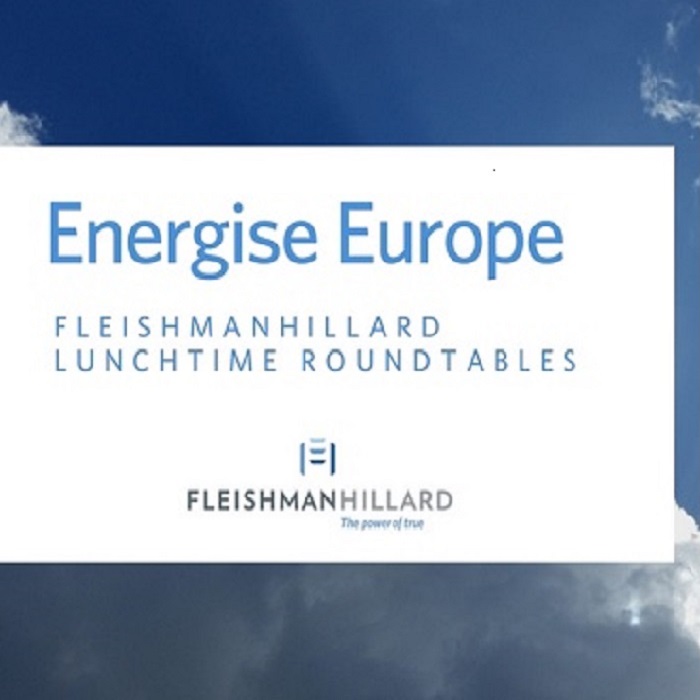EnergiseEurope roundtable - Report: “Delivering Paris – the difficult part: Decarbonising the EU industry”
On 13 February 2018, FleishmanHillard hosted its 2nd ‘Energise Europe’ roundtable, discussing the challenges of decarbonising EU industry by 2050 in accord with the Paris Agreement. Two projects were presented. Mark Driessen, from the Port of Rotterdam Authority, explained plans to create a CO2 collection hub at the Port from which the gas would be piped for deep storage in depleted gas fields beneath the North Sea. Tony Smith, from the UK’s Peel Group, described the project to convert natural gas to hydrogen which would be piped as an alternative fuel to power a range of energy-intensive industrial plants located between Liverpool and Manchester, with a second pipeline taking CO2 to a depleted gas field beneath the Irish Sea.

Real opportunities to seize but…
Both speakers insisted on the opportunities that are offered by existing technologies to decarbonise the EU industry faster, deeper and in a more cost-effective way, ultimately contributing to the ambitious emissions targets set for 2030 and beyond. At the same time they insisted that neither venture would proceed without some form of government financial support to create a business case that could justify the investment. The use of steam methane reformers can convert natural gas to hydrogen in sufficient quantities to make the decarbonisation of industry practical, but with the EU Emission TS carbon price so low there can be no commercial justification for such an exercise, and for the deep underground storage of CO2 also required, unless governments determine that it is a public policy priority.
Solutions to decarbonise: Technologies, policy and challenges
Overall, a broad consensus was reached across the table that no silver bullet can secure the decarbonisation of the industry and no energy source can stand in isolation. Technological improvements and innovations will no doubt reduce CO2 emissions by small degrees, but many sectors will have few choices other than to utilise carbon capture and storage (CCS) technology if the 2050 ambitions are to be realised – and if a start is not made soon it will become impossible to meet the target. Different national situations will need to be taken into account when facing the “energy trilemma” of sustainable, secure and affordable energy.
- CCS itself faces a threefold challenge: a lack political will, insufficient financial support, and concern about public acceptance if CO2 storage below land is proposed. However, most EU governments have yet to explain how they will achieve the 2050 ambitions and have yet to consider what role the technology may play in meeting national goals.
- Transforming natural gas into CO2 and hydrogen as the Peel Group proposed would raise energy prices – highlighting the issue of balancing decarbonisation and cost-effectiveness.
- Doubts were expressed about whether the EU-ETS would ever become a strong enough market tool to promote decarbonisation by industry without public financial support.
- There was agreement that energy efficiency measures should always be regarded as a priority and the most cost-effective means of achieving CO2 emissions reduction.
For more information or access to the presentation, you can send an email to [email protected]
The next EnergiseEurope roundtable will take place on 20 March 2018 and will focus on the social dimension of the energy transition.
More information to come.
Follow us on @FH_EnergyEU
-

Thibault leads the Integrated Communications and Reputation Management team. He is also Head of Media relations and a Certified Crisis counsellor, and leads the DE&I work of the FleishmanHillard EU. Thibault has a strong experience in Strategic and Corporate communications, public relations and public affairs....
Find Out More
-
Generative AI is changing the search game
May 8, 2025
-
The challenges facing Europe and European leaders at Davos 2025
January 24, 2025


